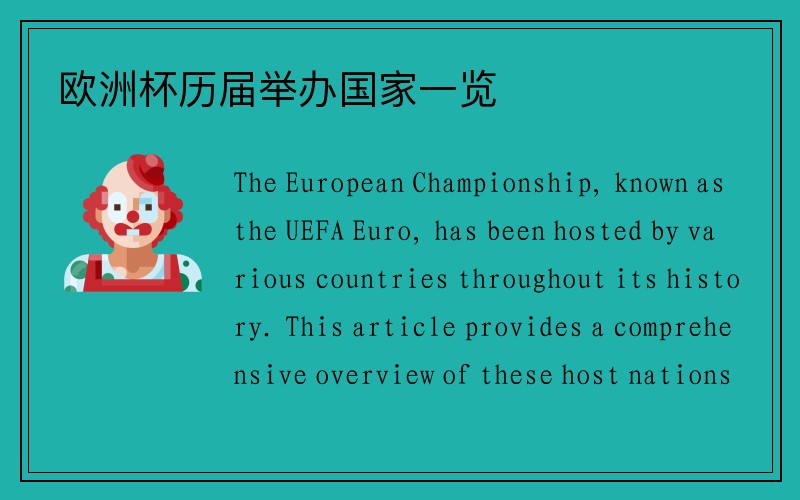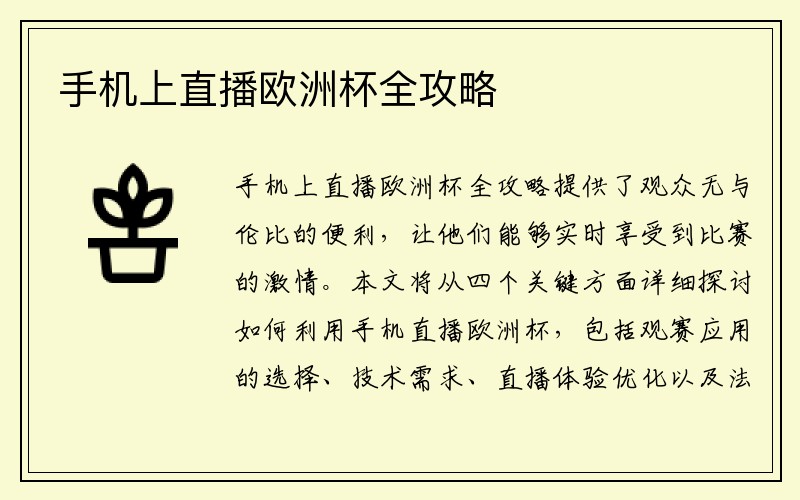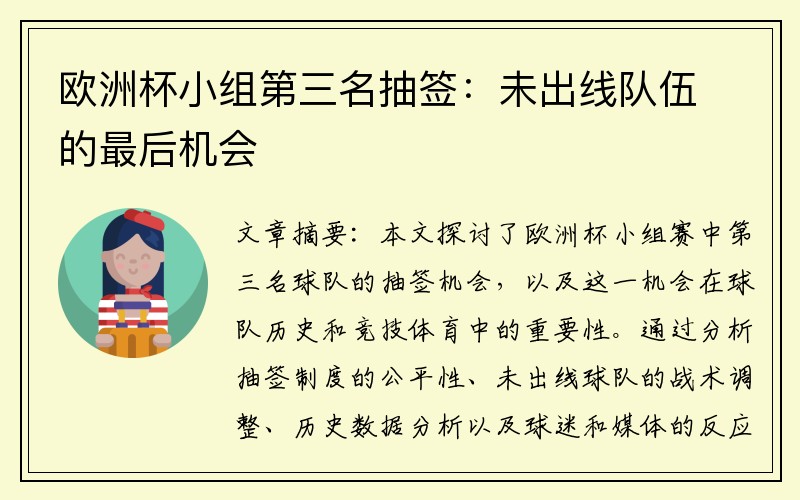欧洲杯历届举办国家一览
The European Championship, known as the UEFA Euro, has been hosted by various countries throughout its history. This article provides a comprehensive overview of these host nations, examining their roles in organizing one of the most prestigious football tournaments in the world.
1、Early Hosts of the UEFA Euro
Since its inception in 1960, the UEFA Euro has seen several nations take up the mantle of hosting the tournament. These early hosts set the stage for the competition's development and popularity across Europe.
Throughout the 1960s and 1970s, nations such as France, Italy, Belgium, and West Germany showcased their organizational capabilities and footballing culture through hosting the Euro.
In the subsequent decades, Spain and England also joined the ranks of esteemed hosts, further solidifying the tournament's prestige.
2、Expansion and Diversity in Hosting
As the UEFA Euro expanded in size and popularity, so too did the diversity of its host nations. The tournament began to rotate more frequently among different European countries, reflecting the continent's rich footballing heritage.
Countries like Sweden, Austria, and Switzerland embraced the opportunity to host the Euro, emphasizing their infrastructural readiness and passion for the sport.
The inclusion of Eastern European nations like Poland and Ukraine in recent years marked a significant milestone, showcasing football's unifying power across the continent.
3、Impact of Hosting on National Identity
Hosting the UEFA Euro often leaves a lasting impact on the national identity and cultural landscape of the host nation. It serves as a platform for showcasing not only footballing prowess but also local traditions, cuisine, and hospitality.
Nations like Portugal and Greece used the Euro as a catalyst for boosting tourism and fostering national pride, leading to long-term socio-economic benefits.
For smaller nations like Iceland and Wales, hosting or co-hosting the Euro provided a unique opportunity to demonstrate their organizational capabilities on an international stage.
4、Legacy and Future Prospects
The legacy of hosting the UEFA Euro extends beyond the tournament itself, leaving a lasting imprint on infrastructure, tourism, and sporting facilities.
Looking forward, emerging footballing nations in Eastern Europe, such as Hungary and Romania, are eager to showcase their potential as future hosts, contributing to the tournament's continued growth and global appeal.
With each edition, the UEFA Euro reaffirms its status as a celebration of European unity through football, inspiring millions across the continent and beyond.
总结:
bat365在线平台
The history of UEFA Euro host nations illustrates the tournament's evolution from its early beginnings to its current status as a cornerstone of European football. Each host nation has left a unique imprint on the tournament's legacy, showcasing their footballing culture and organizational prowess. As the UEFA Euro continues to grow and expand, it remains a symbol of unity and passion for the beautiful game.


